The parasite, Cyclospora, continues to provide illness and intrigue.
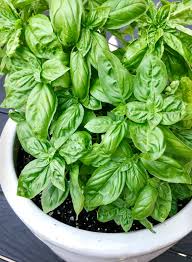 Florida-based Southeastern Grocers has issued a voluntary recall for its “SE Grocers Naturally Better Organic Fresh Cut Basil” following the detection of Cyclospora.
Florida-based Southeastern Grocers has issued a voluntary recall for its “SE Grocers Naturally Better Organic Fresh Cut Basil” following the detection of Cyclospora.
The company says the product was delivered through all of its distribution centers and sold in all its stores, including Winn-Dixie, BI-LO, Fresco y Más and Harveys Supermarkets. The basil comes in a 0.5-ounce container with UPC code 6-07880-20230-4.
The latest recall follows a summer outbreak of Cyclospora in the U.S. linked to Fresh Express and private label brand salad products produced at its Streamwood, IL facility that contain iceberg lettuce, red cabbage, and/or carrots.
690 people with laboratory-confirmed Cyclospora infections and who reported eating bagged salad mix before getting sick weren reported from 13 states (Georgia, Illinois, Iowa, Kansas, Massachusetts, Minnesota, Missouri, Nebraska, North Dakota, Ohio, Pennsylvania, South Dakota, and Wisconsin).
Illnesses started on dates ranging from May 11, 2020 to July 20, 2020.
37 people were hospitalized. No deaths were reported.
Canadians in several provinces were also sickened.
As of November 4, 2020, 370 confirmed cases of Cyclospora illness were reported in the following provinces and territories: British Columbia (1), Ontario (255), Quebec (105), New Brunswick (1), Newfoundland and Labrador (6), and Nunavut (2). Individuals became sick between mid-May and late August 2020. Ten individuals were hospitalized. No deaths were reported.
Frank Yiannas, Deputy Commissioner for Food Policy and Response at the U.S. Food and Drug Administration said in Aug. that a new method developed and validated by the FDA to sample for Cyclospora in agricultural water was used for the first time in a field investigation.
This method was used in our current investigation and may be instrumental in our efforts to better understand the dispersion of the parasite in the environment, which could help prevent future outbreaks. The collective work by public health officials to get these new findings demonstrates a commitment to innovation and science in the service of public health and the importance of strong federal and state coordination on food safety work.
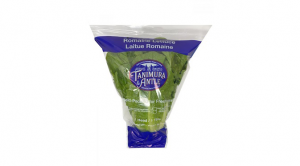 Even as our agencies continue to respond to the COVID-19 public health crisis, teams of experts from the FDA and the Centers for Disease Control and Prevention (CDC) have continued to respond to a threat of a different kind – a nationwide outbreak of Cyclospora illnesses. Cyclospora cayetanensis is a parasite that is so small it can only be seen with a microscope. It causes an intestinal illness called cyclosporiasis from the consumption of contaminated food, mainly fresh produce, or contaminated water.
Even as our agencies continue to respond to the COVID-19 public health crisis, teams of experts from the FDA and the Centers for Disease Control and Prevention (CDC) have continued to respond to a threat of a different kind – a nationwide outbreak of Cyclospora illnesses. Cyclospora cayetanensis is a parasite that is so small it can only be seen with a microscope. It causes an intestinal illness called cyclosporiasis from the consumption of contaminated food, mainly fresh produce, or contaminated water.
Epidemiology linked the illnesses to bagged salad produced by Fresh Express. The number of reported cases of Cyclospora typically rises during May through August. Although CDC conducts surveillance for cyclosporiasis year-round, during the spring and summer months CDC conducts enhanced surveillance for cases of domestically acquired illness. In this outbreak, CDC has reported 690 cases across 13 states, with 37 hospitalizations and no deaths. Onsets of illness range from May 11, 2020 to July 20, 2020. Salads made by Fresh Express and containing iceberg lettuce, red cabbage, and carrots were identified as the food vehicle responsible for the outbreaks.
Traceback of cases with the strongest sources of information (shopper card info, etc.) revealed that bagged salad codes most likely to have resulted in illness contained iceberg lettuce from California and red cabbage from Florida. The FDA evaluated and investigated each of the ingredients in the bagged salads, identifying red cabbage from Florida and iceberg lettuce from California as those most likely in the bagged salads consumed by people who became ill. Traceback investigations are time-consuming work but are critical. In this instance, in the wake of traceback and collaboration with the retailers to recall product, FDA identified a noticeable decline in illnesses that matched the time period in which cabbage sourcing shifted from Florida to another area, providing a possible clue in the investigation.
Environmental sampling detected the presence of Cyclospora in the surface water of a canal near a farm suspected of being a source of the red cabbage. Two samples collected to the north and south of where the farm accessed canal water for seepage irrigation were found to be positive for Cyclospora cayetanensis. The farm that supplied red cabbage was no longer in production at the conclusion of the growing season, so it was not possible to sample product. Additionally, the farms growing iceberg lettuce in California were investigated and all of the samples collected in California were negative for Cyclospora.
Given the emerging nature of genetic typing methodologies for this parasite, the FDA has been unable to determine if the Cyclospora detected in the canal is a genetic match to the clinical cases, therefore, there is currently not enough evidence to conclusively determine the cause of this outbreak.
The FDA has pioneered ways to detect the parasite that have been employed in this outbreak investigation, developing and validating new methods to test for Cyclospora in produce and agricultural water. The first of these new methods was used in 2018 to confirm the presence of the parasite in a salad mix product tied to an outbreak that sickened hundreds of people.
In July 2019, the FDA made its second major advance in Cyclospora detection, completing studies that resulted in a novel, validated method to test agricultural water for the presence of the parasite. These new methods were developed by the Foodborne Parasitology Research Program that the FDA established in 2014 in our Center for Food Safety and Applied Nutrition, in part to break the cycle of recurring Cyclospora outbreaks.
 Strong federal and state coordination on matters of public health are critical. In identifying clinical cases of Cyclospora, assisting in providing traceback records and completing investigations in processing facilities and growing fields, our state partners’ work has proven essential to this investigation. We continue to work to strengthen these vital public health partnerships and federal agencies continue to work together to advance additional tools needed to assist with these investigations. For example, CDC is piloting the use of a genotyping tool to help identify cases of parasitic illness that might be linked to a common source.
Strong federal and state coordination on matters of public health are critical. In identifying clinical cases of Cyclospora, assisting in providing traceback records and completing investigations in processing facilities and growing fields, our state partners’ work has proven essential to this investigation. We continue to work to strengthen these vital public health partnerships and federal agencies continue to work together to advance additional tools needed to assist with these investigations. For example, CDC is piloting the use of a genotyping tool to help identify cases of parasitic illness that might be linked to a common source.
While we as public health agencies have gotten better at detecting foodborne illnesses due to Cyclospora, our ability to trace contaminated foods back to their source has lagged, and once again, our ability to trace has been a challenge in this investigation, due in part to the lack of modernized food traceability capabilities.
Moreover, the detection of the parasite in surface waters near where product was grown once again puts a spotlight on the importance of managing the quality of irrigation water used to grow ready to eat crops. We are working closely with our colleagues at the Florida Department of Agriculture and Consumer Services to investigate this issue further to prevent future occurrences.
These findings further emphasize the importance of industry’s role in ensuring that irrigation water is safe to be used on produce. Under the FDA’s recently released New Era of Smarter Food Safety Blueprint, we’ll continue to remain laser focused on prevention. In the coming months, we will be issuing a proposed rule that will aid in achieving our goal of enhancing traceability to greatly reduce the time it takes to identify the origin of a contaminated food or ingredient tied to a recall and/or outbreak.
In addition, we intend to release a proposed rule in late 2020 to revise certain agricultural water requirements in the Produce Safety Rule and to address practical implementation challenges while protecting public health. We also plan to advance detection techniques that will help us pinpoint sources of Cyclospora outbreaks and to continue our research around water treatments for this parasite.
In closing, we believe the entire fresh produce supply chain from farm to fork can do better and we look forward to continuing our work with our public health partners, growers, processors, distributors and retailers in our shared efforts to protect consumers. Together, we’ll make progress on our overarching goal to give consumers the confidence they deserve to have in the safety of fresh produce.


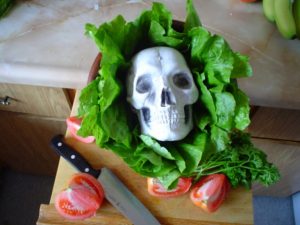


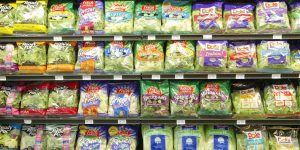


.jpg) in California, sprayed with chemicals that would be used in conventional production, and then harvested immediately and washed with FIT or water. The FIT removed 99.9 per cent more, or so the company claimed.
in California, sprayed with chemicals that would be used in conventional production, and then harvested immediately and washed with FIT or water. The FIT removed 99.9 per cent more, or so the company claimed.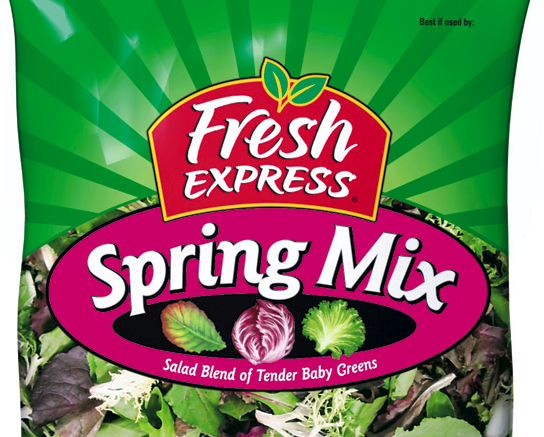 third-party research and testing facility. These independent studies confirmed that Fresh Rinse demonstrated superior effectiveness in removing pathogens from wash water and from certain leafy greens compared to traditional chlorine washes. An article detailing the Fresh Rinse technology has been peer reviewed and accepted for publication by the Journal of Food Protection.
third-party research and testing facility. These independent studies confirmed that Fresh Rinse demonstrated superior effectiveness in removing pathogens from wash water and from certain leafy greens compared to traditional chlorine washes. An article detailing the Fresh Rinse technology has been peer reviewed and accepted for publication by the Journal of Food Protection..jpg) the produce industry is in food safety together. ?
the produce industry is in food safety together. ?.jpg) conventional production, and then harvested immediately and washed with FIT or water. The FIT removed 99.9 per cent more, or so the company claimed.
conventional production, and then harvested immediately and washed with FIT or water. The FIT removed 99.9 per cent more, or so the company claimed. which it claims is many times more effective in killing bacteria. The new wash solution, called FreshRinse, contains organic acids commonly used in the food industry, including lactic acid, a compound found in milk.
which it claims is many times more effective in killing bacteria. The new wash solution, called FreshRinse, contains organic acids commonly used in the food industry, including lactic acid, a compound found in milk.